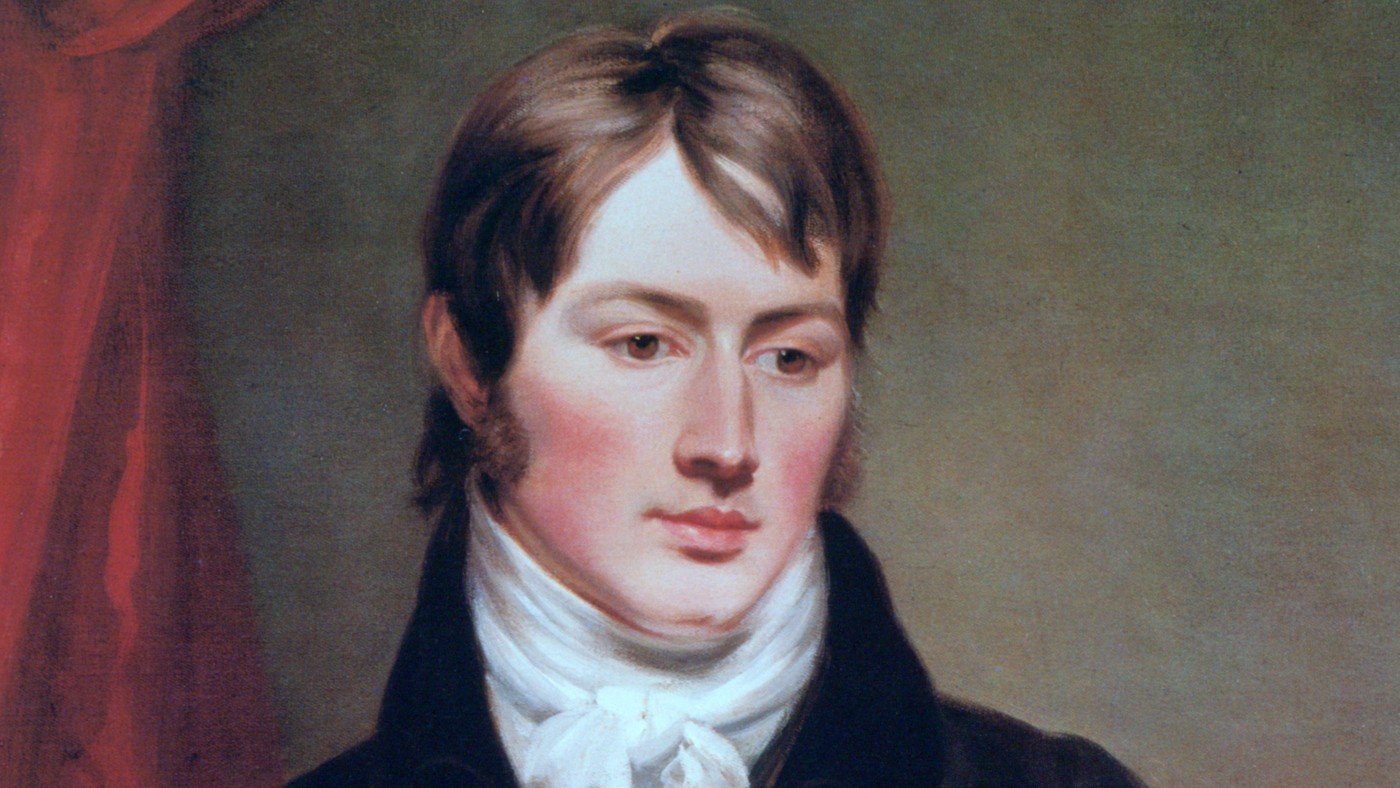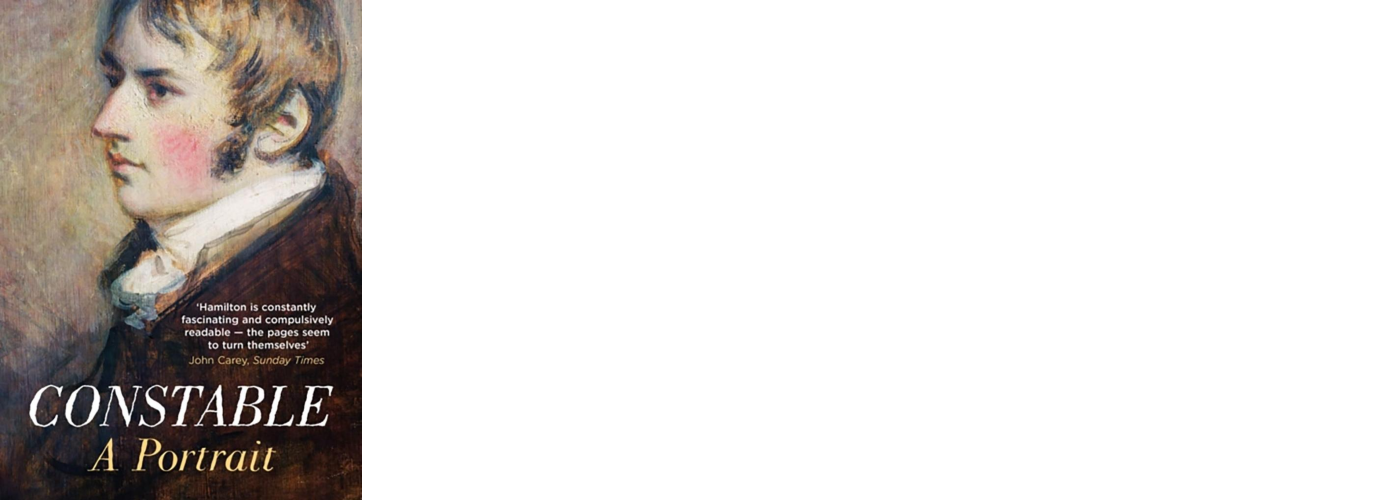Constable: a Portrait by James Hamilton – a warm-hearted biography
This illuminating book suggests that we have got the English painter all wrong

A free daily email with the biggest news stories of the day – and the best features from TheWeek.com
You are now subscribed
Your newsletter sign-up was successful
John Constable, the 19th century landscape artist, has a somewhat fusty reputation, said Laura Freeman in The Times. His work is viewed as quaintly old-fashioned, while the phrase “Constable country” – originally a reference to the Suffolk countryside he painted – has become a catch-all for a “biscuit tin” version of England with “tidily herded” sheep and “neatly stacked” corn. Yet in this illuminating and insightful biography, James Hamilton suggests that we have got Constable all wrong.
The painter, he says, was really “a radical” who defied the expectations of his time by painting landscapes rather than portraits. Moreover, he pioneered many of the techniques – broken colour, modern subjects, an obsessive focus on the play of light – that would become bedrocks of impressionism. Constable, Hamilton writes, possessed an “experimental burn” to paint the skies and seasons as no one had before. He was, in short, an “overlooked revolutionary”.
While that may be an apt description of Constable the painter, it certainly isn’t true of Constable the man, said John Carey in The Sunday Times. A bigoted Tory with insular views, he staunchly refused to go abroad, even when his work was lionised in Paris. He was also “sarcastic, gossipy, tight with money and abusive of other artists’ work”. The paintings of J.M.W. Turner, his main contemporary rival, were, he said, “only fit to be spat upon”. He once compared a William Collins landscape to a “large cow turd”.
The Week
Escape your echo chamber. Get the facts behind the news, plus analysis from multiple perspectives.

Sign up for The Week's Free Newsletters
From our morning news briefing to a weekly Good News Newsletter, get the best of The Week delivered directly to your inbox.
From our morning news briefing to a weekly Good News Newsletter, get the best of The Week delivered directly to your inbox.
Constable was, at least, a devoted family man, said Michael Bird in The Daily Telegraph. He “adored” his wife Maria, and her death from tuberculosis aged 41, eleven months after giving birth to their seventh child, left him genuinely distraught.
Largely because of the “brazen experimentation” of his work, England was slow to appreciate Constable’s greatness, said Ysenda Maxtone Graham in the Daily Mail. For years, he was “obliged to take on portrait commissions to feed his family”, and he was only elected to the Royal Academy aged 43 (Turner was admitted in his mid-20s). Yet he did, as Hamilton aptly observes, become a “legend in his own landscape”.
In 1832, aged 56, Constable was crossing the river valley at Dedham, in Suffolk, when he praised the landscape to a fellow traveller. “Yes, sir,” the traveller replied. “This is Constable’s country.” The painter replied – “I am John Constable” – which must have been deeply “gratifying”. More than anything, as this delightful and warm-hearted biography shows, he yearned to be “appreciated”.
W & N 472pp £25; The Week Bookshop £19.99
A free daily email with the biggest news stories of the day – and the best features from TheWeek.com

The Week Bookshop
To order this title or any other book in print, visit theweekbookshop.co.uk, or speak to a bookseller on 020-3176 3835. Opening times: Monday to Saturday 9am-5.30pm and Sunday 10am-4pm.
-
 The problem with diagnosing profound autism
The problem with diagnosing profound autismThe Explainer Experts are reconsidering the idea of autism as a spectrum, which could impact diagnoses and policy making for the condition
-
 What are the best investments for beginners?
What are the best investments for beginners?The Explainer Stocks and ETFs and bonds, oh my
-
 What to know before filing your own taxes for the first time
What to know before filing your own taxes for the first timethe explainer Tackle this financial milestone with confidence
-
 A thrilling foodie city in northern Japan
A thrilling foodie city in northern JapanThe Week Recommends The food scene here is ‘unspoilt’ and ‘fun’
-
 Tourangelle-style pork with prunes recipe
Tourangelle-style pork with prunes recipeThe Week Recommends This traditional, rustic dish is a French classic
-
 Samurai: a ‘blockbuster’ display of Japan’s legendary warriors
Samurai: a ‘blockbuster’ display of Japan’s legendary warriorsThe Week Recommends British Museum show offers a ‘scintillating journey’ through ‘a world of gore, power and artistic beauty’
-
 BMW iX3: a ‘revolution’ for the German car brand
BMW iX3: a ‘revolution’ for the German car brandThe Week Recommends The electric SUV promises a ‘great balance between ride comfort and driving fun’
-
 Arcadia: Tom Stoppard’s ‘masterpiece’ makes a ‘triumphant’ return
Arcadia: Tom Stoppard’s ‘masterpiece’ makes a ‘triumphant’ returnThe Week Recommends Carrie Cracknell’s revival at the Old Vic ‘grips like a thriller’
-
 My Father’s Shadow: a ‘magically nimble’ love letter to Lagos
My Father’s Shadow: a ‘magically nimble’ love letter to LagosThe Week Recommends Akinola Davies Jr’s touching and ‘tender’ tale of two brothers in 1990s Nigeria
-
 Send Help: Sam Raimi’s ‘compelling’ plane-crash survival thriller
Send Help: Sam Raimi’s ‘compelling’ plane-crash survival thrillerThe Week Recommends Rachel McAdams stars as an office worker who gets stranded on a desert island with her boss
-
 Book reviews: ‘Hated by All the Right People: Tucker Carlson and the Unraveling of the Conservative Mind’ and ‘Football’
Book reviews: ‘Hated by All the Right People: Tucker Carlson and the Unraveling of the Conservative Mind’ and ‘Football’Feature A right-wing pundit’s transformations and a closer look at one of America’s favorite sports